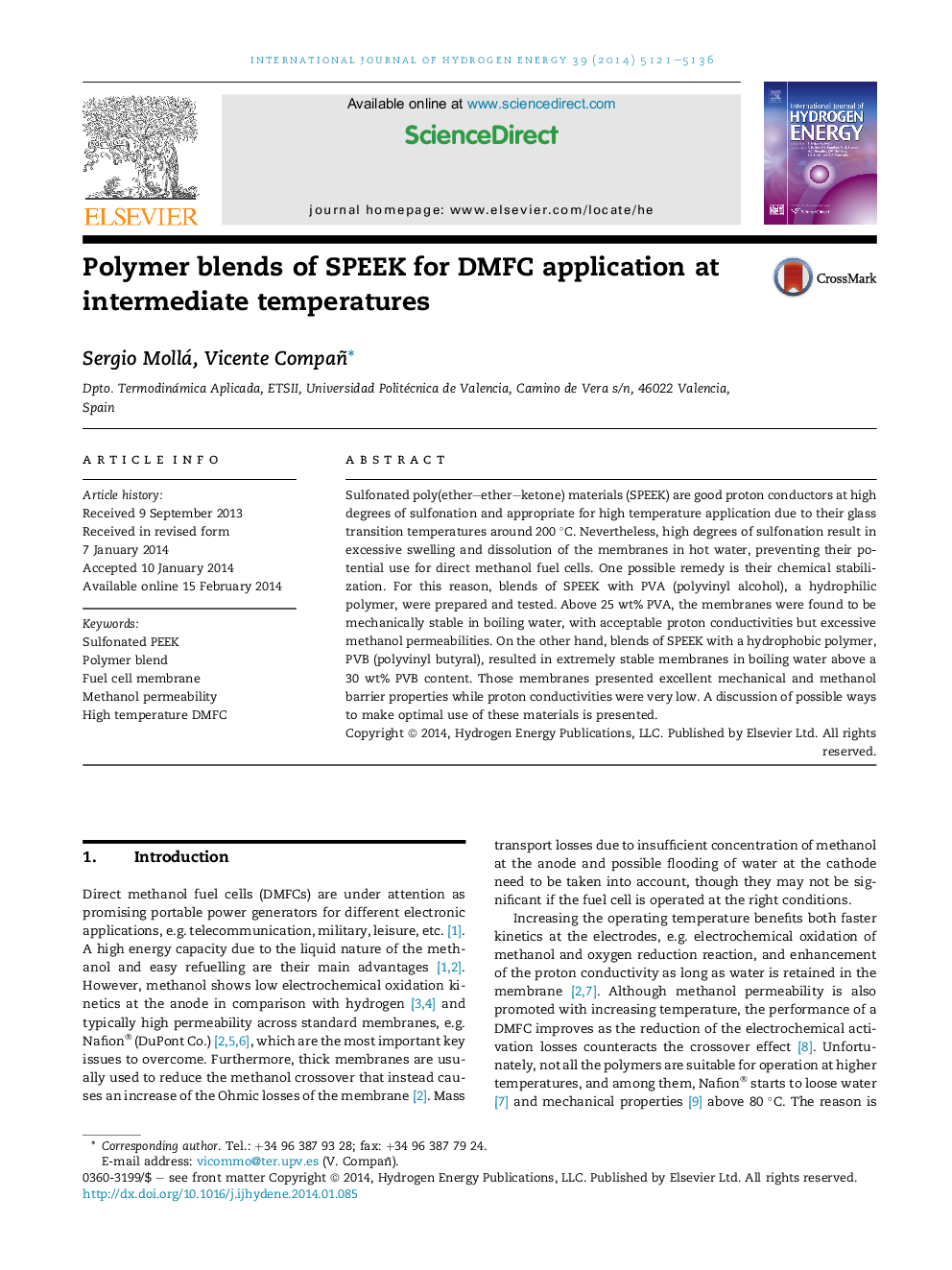| Article ID | Journal | Published Year | Pages | File Type |
|---|---|---|---|---|
| 1281281 | International Journal of Hydrogen Energy | 2014 | 16 Pages |
•SPEEK is not suitable for intermediate temperature DMFC operation due to swelling and dissolution.•Crosslinking SPEEK with PVA and PVB provides stability in boiling water.•Blended SPEEK–PVA membranes emphasize proton conductivity.•Blended SPEEK–PVB membranes show very low methanol permeability.•Composite membranes of SPEEK–PVA and SPEEK–PVB are proposed for synergy effects.
Sulfonated poly(ether–ether–ketone) materials (SPEEK) are good proton conductors at high degrees of sulfonation and appropriate for high temperature application due to their glass transition temperatures around 200 °C. Nevertheless, high degrees of sulfonation result in excessive swelling and dissolution of the membranes in hot water, preventing their potential use for direct methanol fuel cells. One possible remedy is their chemical stabilization. For this reason, blends of SPEEK with PVA (polyvinyl alcohol), a hydrophilic polymer, were prepared and tested. Above 25 wt% PVA, the membranes were found to be mechanically stable in boiling water, with acceptable proton conductivities but excessive methanol permeabilities. On the other hand, blends of SPEEK with a hydrophobic polymer, PVB (polyvinyl butyral), resulted in extremely stable membranes in boiling water above a 30 wt% PVB content. Those membranes presented excellent mechanical and methanol barrier properties while proton conductivities were very low. A discussion of possible ways to make optimal use of these materials is presented.
